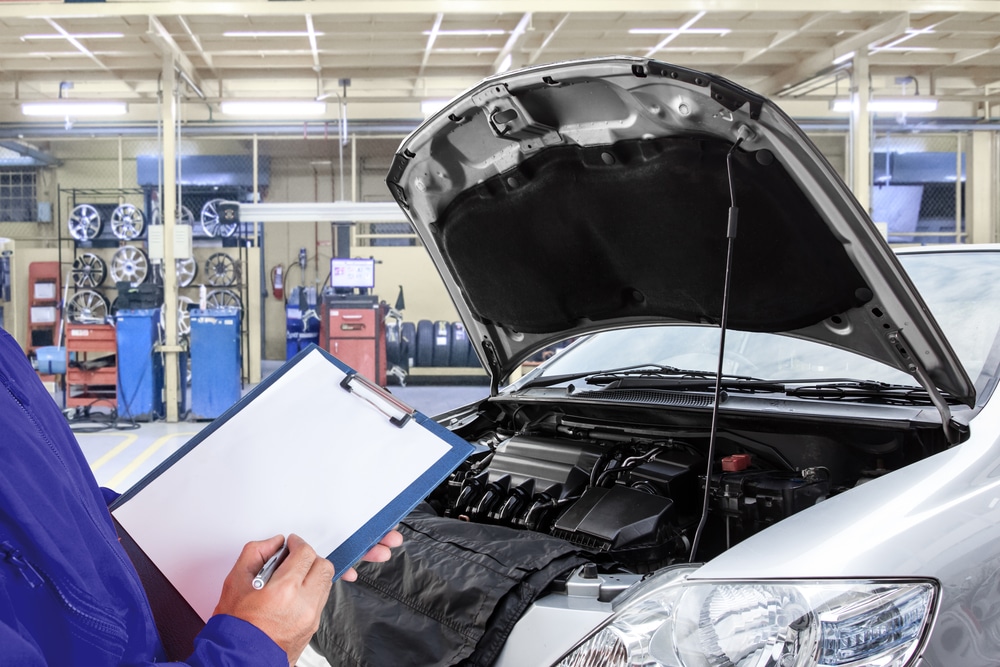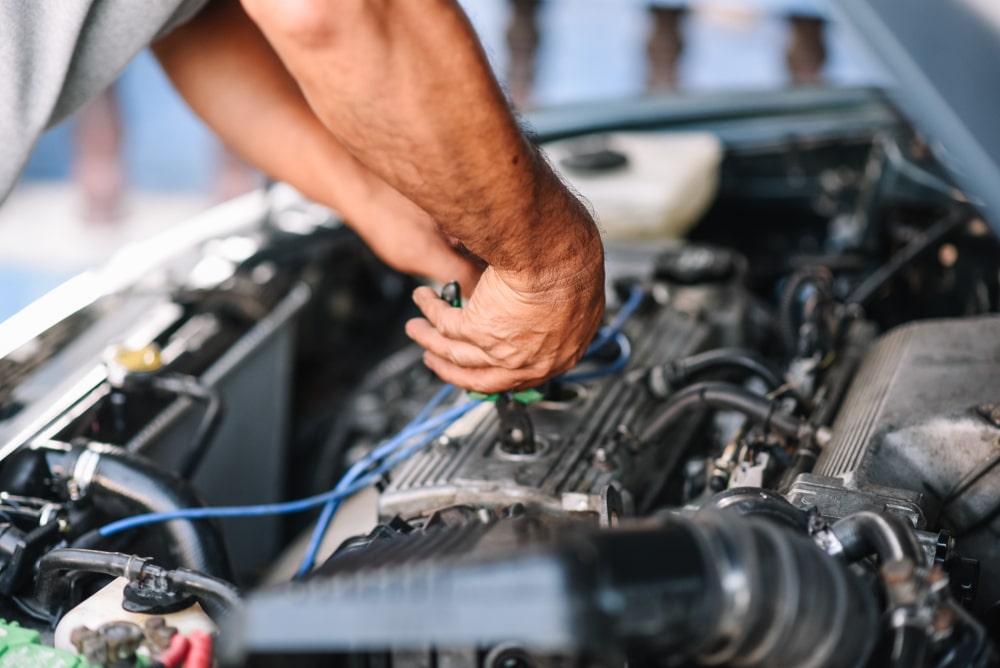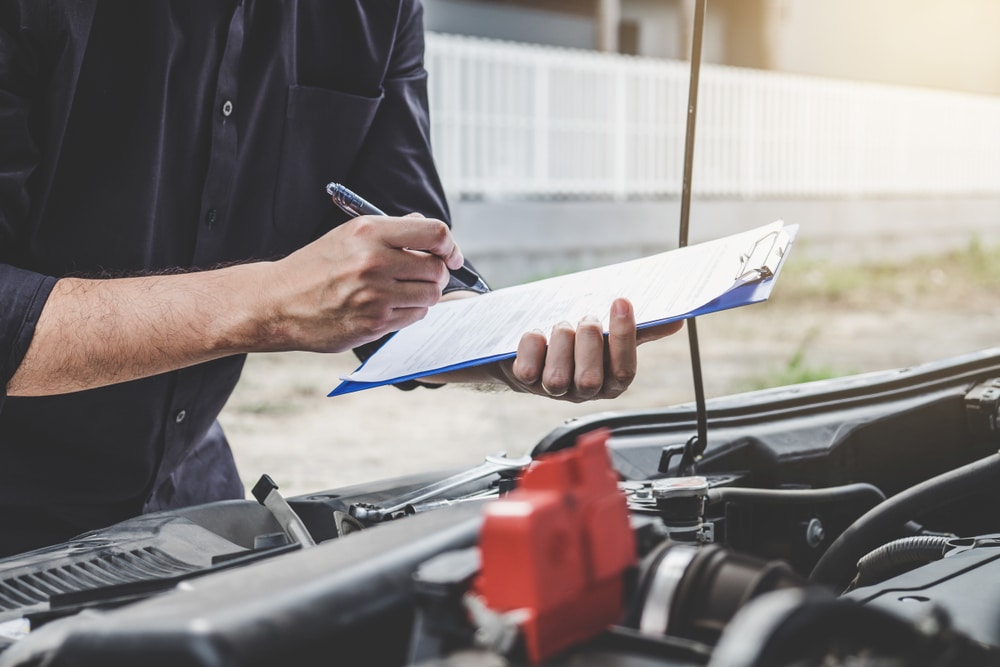Your vehicle is a significant investment, and keeping it in top condition requires ongoing attention.…

Understanding How Your Local Car Mechanic Services Your Transmission
The transmission is one of the most critical components of any vehicle, responsible for transferring power from the engine to the wheels to ensure smooth operation. Whether you’re navigating city streets or embarking on a long road trip, a well-maintained transmission is key to optimal performance, fuel efficiency and safety. Neglecting it, however, can lead to costly repairs, poor vehicle performance and potential safety risks. This article explores the essential processes and expertise a local car mechanic employs to service transmissions, ensuring this vital system runs efficiently and reliably.
Assessing Transmission Health
Servicing a transmission begins with a comprehensive evaluation of its health. Mechanics rely on advanced diagnostic tools to identify issues, such as scanning the vehicle’s onboard computer for error codes or anomalies. These tools not only help pinpoint underlying problems but also save time and allow mechanics to deliver precise solutions. For instance, a diagnostic tool can detect slipping gears or irregular temperature readings within the transmission system, providing invaluable insights.
Symptoms such as slipping gears, unusual noises, delayed acceleration or visible fluid leaks often indicate transmission trouble. Skilled mechanics interpret these signs to uncover the root cause of the problem. For example, a whining noise might suggest a failing pump, while a burning smell could indicate overheating fluid. Addressing these issues early can prevent minor malfunctions from escalating into major repairs, saving you both time and money.
Among the most frequent transmission issues are worn-out clutches, faulty solenoids and fluid leaks. These problems often arise from regular wear and tear, lack of maintenance or excessive strain on the vehicle. Mechanics excel at diagnosing such issues and implementing effective repairs, ensuring your transmission returns to peak functionality.
Understanding the Role of the Clutch in Manual Transmissions
For vehicles equipped with manual transmissions, the clutch is a critical component that facilitates gear changes. According to Kelley Blue Book, all cars with a manual transmission have three pedals: the accelerator, brake and clutch. The clutch pedal is unique to manual vehicles and allows the driver to disengage the engine from the transmission when shifting gears.
Proper maintenance of the clutch system is essential to ensure smooth operation and prevent premature wear. Mechanics focus on examining the clutch for signs of slipping, sticking or excessive wear during regular servicing. For example, if a driver notices a delay in acceleration or hears a grinding noise when shifting gears, it could indicate a worn-out clutch. Addressing these issues early not only extends the lifespan of the clutch but also enhances the overall performance of the transmission.
Moreover, professional mechanics emphasize educating customers about proper clutch usage to avoid unnecessary wear. For instance, keeping the clutch pedal partially depressed while driving—commonly referred to as “riding the clutch”—can increase friction and lead to quicker deterioration. By offering insights and tips, mechanics help vehicle owners maximize the efficiency and longevity of their manual transmission systems.
Recognizing the Importance of Regular Inspections
Routine inspections are a cornerstone of transmission health. During these checks, mechanics examine fluid levels, inspect components like seals and gaskets, and assess the overall performance of the system. These preventive measures not only extend the life of the transmission but also help identify potential issues before they result in costly breakdowns. Regular inspections are especially critical for vehicles with high mileage or those used for heavy-duty tasks, such as towing.
Consulting Customers and Listening to Feedback
A key aspect of professional service is effective communication with vehicle owners. Mechanics often rely on customer feedback to gain insights into performance issues. Descriptions of symptoms, such as hesitation during gear shifts or unusual vibrations, can guide mechanics to potential problems. Open dialogue ensures a thorough and personalized approach to repairs and maintenance, enhancing customer satisfaction and trust.
Checking and Replacing Transmission Fluid
The type of transmission fluid used is crucial for maintaining optimal performance. Different vehicles require specific fluids, such as automatic transmission fluid (ATF) or manual gear oil, to suit their unique systems. Using the correct fluid prevents wear and tear, reduces friction and ensures smooth operation. Local mechanics have extensive knowledge of these specifications, ensuring compatibility and effectiveness.
Low or inconsistent fluid levels are a common cause of transmission problems. Mechanics check fluid levels during routine maintenance using dipsticks or sealed system inspection ports. Ensuring the fluid level is within the recommended range helps avoid overheating, erratic shifting and unnecessary wear on internal components.
Contaminated transmission fluid can significantly hinder system performance. Mechanics look for telltale signs such as burnt odours, dark colouration or visible debris in the fluid. Contaminated fluid can cause clogs, reduced lubrication and eventual component failure, making timely replacement essential.
Understanding the Process of Fluid Replacement
Replacing transmission fluid involves several meticulous steps: draining the old fluid, cleaning the transmission pan, replacing the filter if necessary and refilling the system with fresh fluid. Mechanics also check for leaks and test the system to ensure optimal performance. This attention to detail ensures smoother gear transitions and prolongs the lifespan of the transmission.
Maintaining the Transmission Filter
The transmission filter plays a critical role in preventing contaminants from circulating within the system. By trapping debris, it protects internal components from premature wear. A clean and functional filter is essential for maintaining transmission efficiency and longevity.
A clogged filter can disrupt fluid flow, leading to overheating, gear slippage or delayed engagement. Mechanics are adept at spotting the warning signs of a clogged filter and replacing it promptly. This simple yet vital service can prevent extensive damage and costly repairs.
Mechanics use high-quality filters—either original equipment manufacturer (OEM) parts or trusted aftermarket alternatives—to ensure reliability and performance. Substandard filters can compromise the entire system, making quality replacements a non-negotiable aspect of transmission maintenance.
Making Mechanical Repairs and Adjustments
Beyond fluid and filter maintenance, mechanical repairs are sometimes necessary. Problems such as worn-out gears, damaged bearings or misaligned components require a trained eye and precise tools. Mechanics perform detailed inspections to diagnose these issues and recommend appropriate repairs.
In some cases, a simple adjustment can resolve performance issues. For example, recalibrating gear synchronizers or correcting linkage alignment can restore smooth shifting without extensive repairs. Mechanics use specialized tools to carry out these adjustments with precision.
After repairs or adjustments, mechanics conduct rigorous tests to verify the system’s performance. These quality assurance measures ensure that the transmission operates as intended and provides a reliable driving experience.
Choosing a Local Car Mechanic
Local mechanics pride themselves on building lasting relationships with their customers. Their personalized approach to vehicle care ensures tailored services that meet individual needs. This level of attention often translates to better results and higher customer satisfaction.
Choosing a local mechanic offers unparalleled convenience. With workshops situated within the community, you benefit from quick turnaround times, easy access and familiar faces. This proximity makes it easier to maintain regular servicing schedules, keeping your vehicle in top condition.
Local mechanics are seasoned professionals with extensive training and experience. Their expertise, particularly in servicing transmissions, guarantees thorough care and reliable results. Whether it’s a minor adjustment or a major repair, you can trust them to handle the job with precision.
Considering Environmental Responsibility
Responsible disposal of used transmission fluid and other waste is a priority for reputable mechanics. By adhering to environmental regulations, they ensure that harmful substances are collected, recycled or disposed of properly. This commitment to sustainability benefits both the environment and the community.
Proper transmission maintenance is essential for vehicle performance, safety and longevity. Local car mechanics bring a wealth of expertise and a personal touch to every service, ensuring your transmission remains in excellent condition. From fluid checks and filter replacements to mechanical repairs and customer consultations, their comprehensive approach helps you avoid costly breakdowns and keeps your vehicle running smoothly.
Our team at Procheck Automotive, a family-owned business based in Caloundra, has been providing expert automotive services since 2012. With a team of qualified mechanics and a commitment to exceptional customer care, we ensure your vehicle is in capable hands. Visit our workshop on Bronwyn Street or book an appointment today to experience reliable and professional service. Call us today to learn more!



